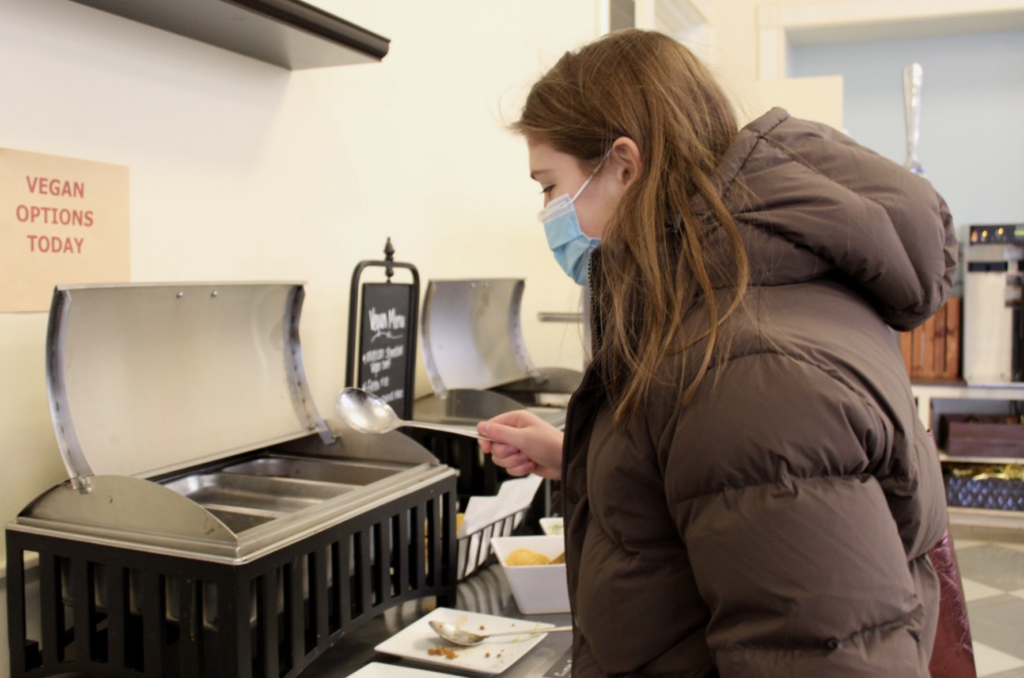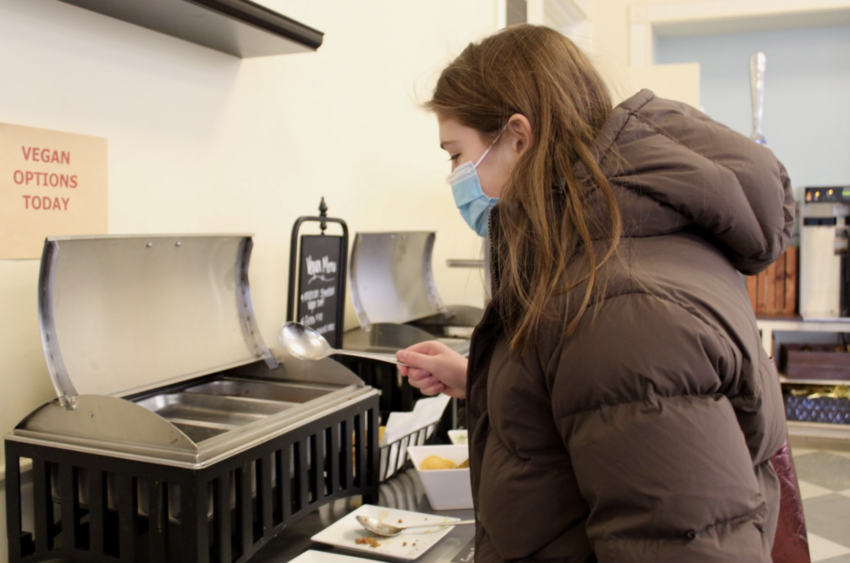Talia Cutler ’23
Students, faculty, and families alike gather in the dining hall for their meals. It is a fulcrum of everyday student life at Mercersburg. However, it has sometimes faced criticism for the lack of variety in food, especially for those with special nutritional needs. Dietary restrictions are an integral part of feeding the Mercersburg community, and yet some students feel that improvements could be made. Linden Amster ‘23 says, “The dining hall usually has very limited vegetarian options. Occasionally the vegetarian options run out very quickly or they have no relation to any of the other foods being served and feel out of place.”
Little black cards placed on the buffet-style food lines disclose whether or not the cuisine has soy, tree nuts, gluten, or is vegetarian. Yet the stationary ‘gluten free’ option often consists of repetitive dishes. “The dining hall staff works really hard, but sometimes they overlook small things, and there isn’t always a sufficient meal for people who need a vegetarian option,” Amster says. Maddy Stang ‘22 has been vegetarian for about a year. Stang says, “I think that the food is ok, but sometimes I think the effort is minimal with vegetarian options, like the steak season uncooked tofu. Some of the food is really good though, like the nuggets or the Mongolian tofu. I feel like the dining hall could make it easier if they possibly made a vegan version of the regular option.”

Assistant Dean of Students, Coleman Weibley, says, “In terms of ensuring quality vegan and vegetarian options, we work closely with Meriwether Godsey to make sure all of the dietary restrictions and preferences we are aware of are met.” Alex Forrester ‘23 says, “I think that the options are pretty solid overall. They offer a wide variety of options because even when the main dish isn’t appealing, there’s the deli and salad bar along with some soups. I would personally like to see beans be made for every meal like how rice is.”
Catering Manager Sarah Music oversees front-of-house operations in the dining hall. Music says, “I try to get feedback from students, faculty and staff on the menu vegan and vegetarian items. Any of the feedback I am given, I share during our daily production meetings. Regardless of positive or negative feedback it is discussed. I personally feel the only way I can truly know how we are doing as a whole is to have conversations about what ‘works and doesn’t work.’ Another tool that is used to warrant quality is our production sheets. Each meal we note the quantities made, consumed and the feedback that is shared.”
Like many other aspects of campus life, the pandemic has had an effect on the variety of food offered in the dining hall. Several supply chain issues and alternative products limit ingredients that can be used for vegan and vegetarian products. “This has caused us to get creative and try new items we may not have used in the past,” Music says. “Our home office is actively looking at ways to stay current with vegan and vegetarian options. In the last several years the numbers of recipes have increased drastically. Menus are now being created around vegan and vegetarian options.”
Although new challenges are presented daily, the dining hall staff emphasizes communication above all else and is working diligently to overcome obstacles presented by COVID-19. Forrester says, “Vegan and vegetarian options are much better than last year and the year prior. I think a lot of that improvement can be attributed to Meriwether Godsey’s effort and how they always encourage feedback and suggestions.” Students and faculty should email any menu feedback to madining@merig.com.

